About Us
Silence looms over a patch of grassy savannah, and yet, there is a subtle, electric tension by a waterhole. Lycaon pictus—the painted wolf, or African wild dog, blends in with the yellow grass, becoming one with its habitat…
Elsewhere, at a small plant in the smog-choked light industrial area of Lusaka, Velten Tiemann is one with his own habitat, hand-packing cans of Wild Dog —his signature brew and Zambia’s first registered craft beer. Wild Dog embodies the spirit of the African canine. First brewed by Velten in 2016, it was birthed out of a need to not to be tamed.
“I was born and brought up in Ndola. After school, I left for Germany to study winemaking and worked there. Then I went to Australia to work as a winemaker and met my wife—she’s from Lusaka. Seven years ago, she said let’s move back to Lusaka and there wasn’t much [for me]… there was no work as a winemaker or anything. But I had to ferment something”.

Velten started small, making his beer on a 100-litre machine system with two batches a day.
“I’d make maybe 90 bottles of beer. This was great fun and was getting you know, getting the word out there. It was good experience,” Velten says.
“We decided on the wild dog because I just like the animal. A friend who I grew up with, Astrid Krag-Olsen, came up with a picture of the dog and the first label, and then I started doing it on bottles”.
In case you’re wondering, craft beer is beer made by small, independent, traditional brewers. That means while larger corporations will mass-produce litres of beer, craft brewers like Wild Dog from Tiemann Beer will produce smaller quantities with a focus on unique taste.

Using its keen senses of smell, sight and intuition, the wild dog and its pack track their prey to the watering hole. A large, unsuspecting buffalo greedily quenches its thirst and grazes from the abundance of the land. It will be quite the challenge for the small pack to take the beast down, but the African wild dog has never been known to shy away from a challenge.
While making wine would have been easier for Velten, he chose instead to brew craft beer. “With beer, you have to be very, very particular. See, to make a wine, it’s a process that takes years…. to make a beer it takes three to five weeks. Somebody goes to the pub and drinks your beer this week, and next year, he orders the same beer and if it tastes different? They’re not happy. So you have to be, you know… it’s the consistency. Getting the right taste or flavour profile and everything the same is much harder. But it’s fun as well. There’s a lot of different things that you can do”.
Velten uses a combination of keen senses and intuition to get the unique taste of the different flavours of Wild Dog craft beer precise. There’s an element of alchemy to Tiemann Beer’s brewing process too, using the finest Zambian ingredients and only utilising foreign material in small quantities.
“60 percent to 70 percent of our malt is local Zambian malt barley. That gives us the base and then we get other malt from England, but they’re only a small percentage,” says Velten.
While the company’s product offering is growing, Wild Dog has four main beers: “We have the Amber Ale, which is 4.5 percent [alcohol volume]. That’s all about the malt. Then we have the lager, which is just a bit more full body than the normal, commercial lagers. We don’t use maize. We don’t use sugars. Then we have our Pale Ale at 5.2 percent, which is a bit more about the hops. And [lastly] we have the Shempa Ale, which not only has the local malt, but it’s also got a good percentage of cassava and sorghum—and that’s our 6 percent brew”.
Velten smiles in amusement as he talks about the origins of the name of their strongest beer. ‘Shempa’ is a colloquial Bemba term for ‘slap’.
“So when I was making beer in the old brewery, I used to make it in 750ml bottles, and I gave it to one of my friends, Israel Ngulube, and he came back saying, ‘I want more of that shempa! I want another shempa!’ I told him, ‘it’s craft beer!’ He says, ‘No, no, it’s shempa! Now all my friends all call it shempa because it’s so strong!’”
Orange and black patches of fur flash through the grass, the pack moving in spectre-like speed to pounce on the buffalo. The canines lock their jaws into the beast’s soft spots. All wild dogs the continent over, move with a grace that appears rehearsed, each pack with its own signature hunting tactics.

Signature recipes and brewing methods are commonplace with craft beer makers. To compete with well-known brands and win the hearts of beer lovers, Velten employs his own version of a process called cold conditioning.
“It takes three weeks from the malt to the finished product. Can conditioning is when we can the beer with some sugar and yeast,” he says. “And then we leave it out in the brewery for another two weeks to ferment and that just gives it that finer bead and small bubble. And then after those two weeks we put it in the cold room for a week.”
Velten says that this is a meticulous process that they have to watch closely and it helps give Wild Dog its unforgettable taste. “You can even have beer finished in two and a half weeks if you want to. But this is just something I’m a strong believer in, this can conditioning, and that we get it right to make our beer”.
Tufts of dry grass and fur fly as teeth sink into flesh and paws and hooves stomp the earth. The buffalo is formidable, but the collective efforts of the pack overwhelm the large animal…
Few successful ventures work off the sweat of just one man’s back. Aside from his wife and small team here in Lusaka, Velten credits another man with helping him realise his vision.
“There’s a brewer in South Africa who helps me, Danie Odendaal. I took my recipes to him. He changed them from small to big scale.” Velten speaks highly of the brewmaster that helped him perfect his craft. “He’s the person behind it with all the beer knowledge. He’s one of the best, if not the best consultant to craft breweries in South Africa”.
Velten recalls starting out with a small tap system for his beer in a cool box and taking it to markets or festivals and sell it in disposable cups.
“I think I had six beers, six or seven beers,” he says. “And then when Danie came, he says, ‘No, we’re not going to do six or seven beers, let’s just do a core range’,” Today, Wild Dog beer also has a gin and tonic, the Copper Mule, and there are even plans for a limited edition white ale for the winter.
The beer brand seems to be steadily growing, with Wild Dog not only being recognised in Zambia, but South Africa as well. Tiemann Beer received a silver medal (there was no gold medal awarded) for the Shempa Ale in the ‘Alternative Fermentables Beer’ category in the African Beer Cup in 2021.
“Financially, what I’m doing might not be wise… but to me it’s much more important to have a proper product that’s good and has a name for itself. Because that’s what it’s about. Otherwise I can go and make Coca-Cola,” says Velten.
As the sun sets, the wild dog comes alive. Tails wag and short barks of excitement are heard across the plains of the savannah. However large or small its prey may be, the pack lives for the hunt…
Asked about why anybody should pick Wild Dog over another craft or local brew, Velten says, “At the end of the day, it’s up to you, your drink. What you think is nice and what your back pocket can afford. Not everybody’s going to like Wild Dog. But I’d like to stand out in the forefront…There’s so much variety in beer. You can choose whatever, but we’ve all got different tastes and everyone’s got to find their taste. Imagine if we all had the same taste. That poor girl!
“But I’m not here to make everybody happy I’m here to make good craft beer”.
A bit about Tiemann Beer explain the reason behind the company and write up.
Organisational structure

Mrs Wendy F. Tiemann
Head of operations and logistics.
She has over experience of over 20 years in the beer and bottled water industry. She has a degree in marketing and sales analysis. She worked for Handymans as a sales manager before she ventured into the manufacturing of bottled drinking water.

Mr Velten A. Tiemann
Head Brewer
He has over 30 years of experience in the wine and beer industry. He has worked in Australia and Germany in the beer industry before he relocated to Zambia to set up his own craft brewery.

Imran Nganjo
Assistant Brewer:
He has over 2 years of experience in the craft beer industry. He is currently pursuing his studies in production management.

John Sipiya
Accounts and Admin manager:
He is qualified accountant with over 15 years of experience in the accounting field. He is a registered member of ZICA. He has been with Tiemann beer from the time it was the business was incorporated. He is in charge of accounting functions and administration
